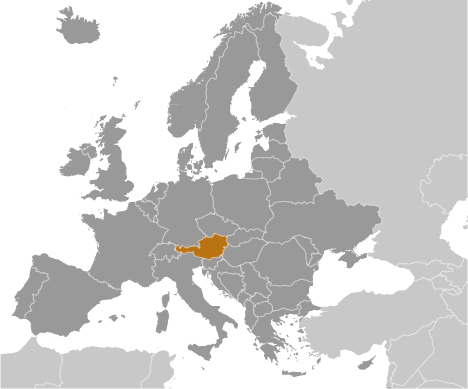HISTORICAL BACKGROUND
Article 20 of the 1987 Constitution requires that government bodies and corporations must provide information to citizens while also setting extensive secrecy requirements:(1)
(3) All functionaries entrusted with Federal, Laender and municipal administrative duties as well as the functionaries of other public law corporate bodies are, save as otherwise provided by law, pledged to secrecy about all facts of which they have obtained knowledge exclusively from their official activity and whose concealment is enjoined on them in the interest of the maintenance of public peace, order and security, of universal national defence, of external relations, in the interest of a public law corporate body, for the preparation of a ruling or in the preponderant interest of the parties involved (official secrecy). Official secrecy does not exist for functionaries appointed by a popular representative body if it expressly asks for such information.
(4) All functionaries entrusted with Federation, Laender and municipal administrative duties as well as the functionaries of other public law corporate bodies shall impart information about matters pertaining to their sphere of competence in so far as this does not conflict with a legal obligation to maintain secrecy; an onus on professional associations to supply information extends only to members of their respective organizations and this in as much as fulfilment of their statutory functions is not impeded. The detailed regulations are, as regards the Federal authorities and the self-administration to be settled by Federal law in respect of legislation and execution, the business of the Federation; as regards the Laender and municipal authorities and the self-administration to be settled by Land law in respect of framework legislation, they are the business of the Federation while the implemental legislation and execution are Land business.
The 1987 Auskunftspflichtgesetz (Federal Law on the Duty to Furnish Information) obliges federal authorities to provide information regarding their areas of responsibility within eight weeks.(2) The requests can be written or oral and no justification is required. It applies to national departments, the municipalities, the municipality federations and the self-governing bodies.
Authorities are limited by the secrecy provisions set out in Article 20(3) of the Constitution for reasons relating to public security, defense, international relations, or economic or financial interests of the government.
Appeals for denials are made to the administrative agency first and then to the Administrative Court. The court can rule that the decision was not justifiable.
Austria signed the Aarhus Convention in June 1998 and ratified it in January 2005. The Federal Law on Environmental Information was adopted in 1993 and amended in 2005 to implement the 2003 European Union Directive on the freedom of access to information on the environment for information held by the federal government.(3) In 2002, the EU brought a case in the European Court of Justice identifying several areas where the 1990 Convention had not been properly implemented. It dropped the case in 2002 following changes in the national and state laws.(4) In June 2003, the ECJ issued an opinion in a case brought by a MP that administrative documents relating to the labeling of genetically modified foods (GMOs) were not covered by the 1990 Directive.(5) This was resolved with the adoption of the 2003 EU Directive which covers GMOs.
A law implementing the requirements of the EU Directive on the re-use and commercial exploitation of public sector information (2003/98/EC) was adopted in November 2005.(6) Separate bills are also necessary for each of the states and thus far have been adopted in Vienna and Carinthia.(7)
The Data Protection Act allows individuals to access personal information about themselves held by public and private bodies.(8) It is overseen by the Data Protection Commission.(9)
The Federal Archives Act sets rules on the preservation of official documents.(10)
The nine Austrian states have FOI laws that place similar obligations on their authorities.(11) There are also laws in the states on providing access to environmental information.(12)
2004 freedominfo.org Global Survey Results - Austria
NOTES
1. Austrian Federal Constitutional Law.
2. BGBl 1987/285 (15 May 1987). http://www.ris.bka.gv.at/erv/erv_1987_287.pdf
3. Umweltinformationsgesetz (Law on access to information on the environment), BGBl. No 495/1993, BGBl. No 137/1999.
4. Case C-86/01. See European Commission, "Access to Environmental Information: Commission moves against Austria, " 13 September 2000.
5. Case C-316/01, Judgement of the Court, 5th Chamber, 12 June 2003. Opinion of Advocate General Tizzano, Case C-316/01 Dr Eva Glawischnig v Bundesminister für soziale Sicherheit, 5 December 2002.
6. Bundesgesetz über die Weiterverwendungvon Informationen öffentlicher Stellen (Informationsweiterverwendungsgesetz) nr. 135, 18.11.2005.
7. For more information, see EU Information Society Portal.
8. Datenschutzgesetz 2000 (DSG 2000), Austrian Federal Law Gazette part I No. 165/1999. http://www.ris.bka.gv.at/erv/erv_1999_1_165.pdf
9. Homepage: http://www.bka.gv.at/datenschutz/
10. Federal Archives Act, Federal Law Gazette I No 162/1999.
11. Federal Fundamental Act dated 15 May 1987 on the duty to grant information on the part of the administration of the Laender and themunicipalities (Fundamental Act on the duty to grant Information). http://www.ris.bka.gv.at/erv/erv_1987_286.pdf See Council of Europe, Responses to the Questionnaire on National Practices in Terms of Access to Official Documents, Sem-AC(2002)002 Bil, 18 November 2002.
12. See Eva Glawischnig & Georg Gunsberg, "Austria: Legal and Institutional Framework and Practices for Public Participation" in Doors to Democracy: Current Trends and Practices in Public Participation in Environmental Decisionmaking in Western Europe, Regional Environmental Centre, June 1998.





















